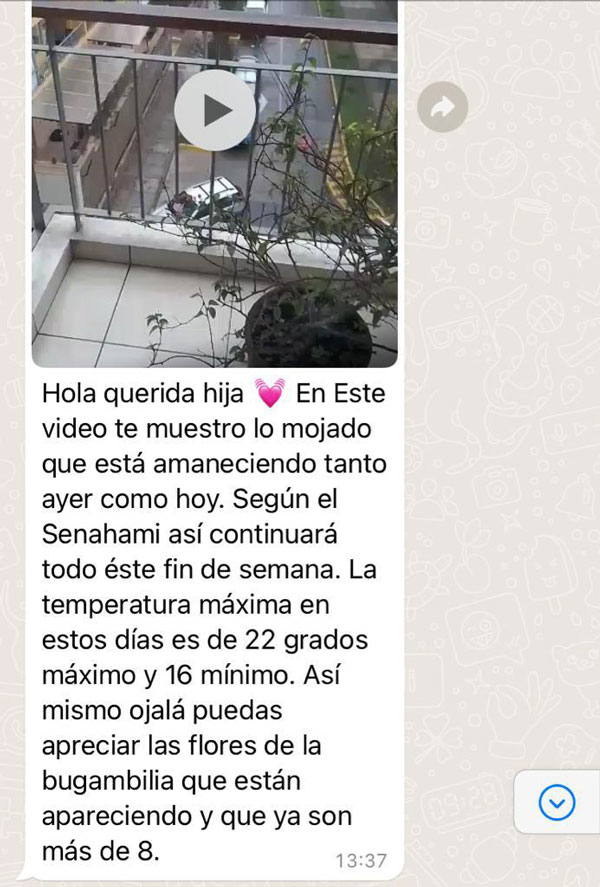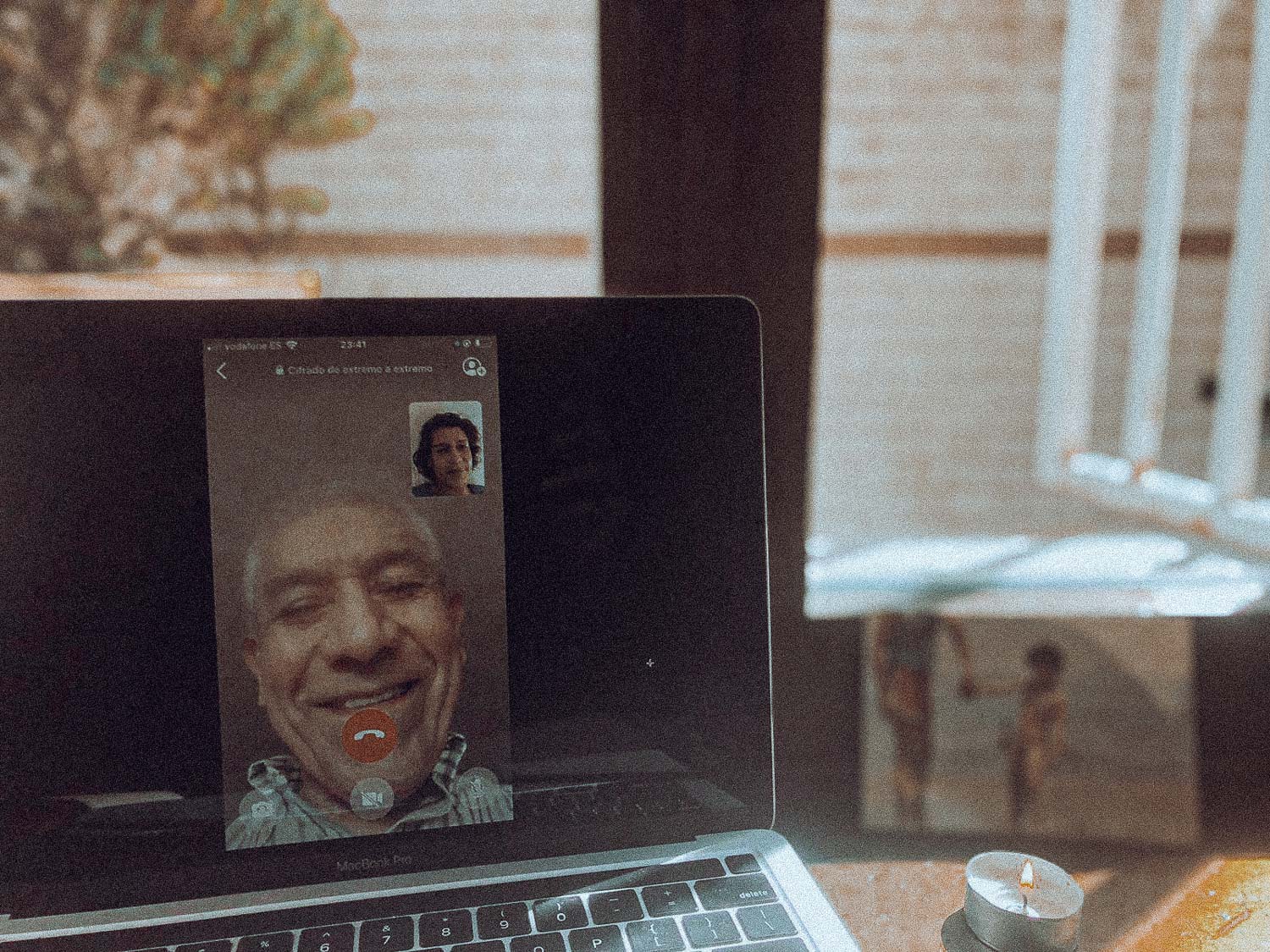





I am forty-four years old and have one eye that cannot see. With the other, I look at that old gardener, a young father who built his family into a visual fantasy. He held a similar camera like the one with me today, but he pruned the images as if they were his own bougainvilleas, masterfully hiding what was decomposing with time.
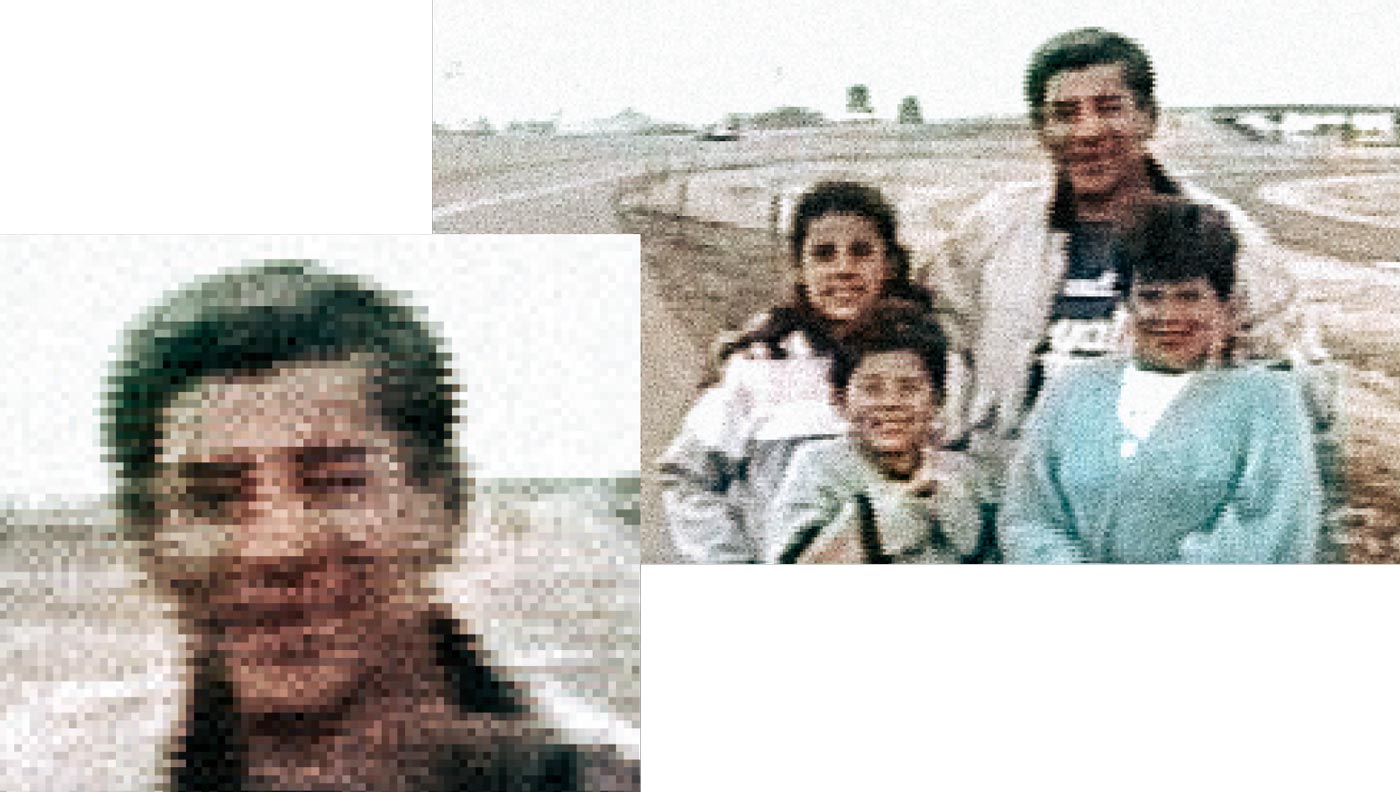
I immerse myself in a cinematic journey of transformation: exploring family archives shot and narrated by my father, reshaping and transmuting images to rescue the imperfect, the damaged, and the silenced.
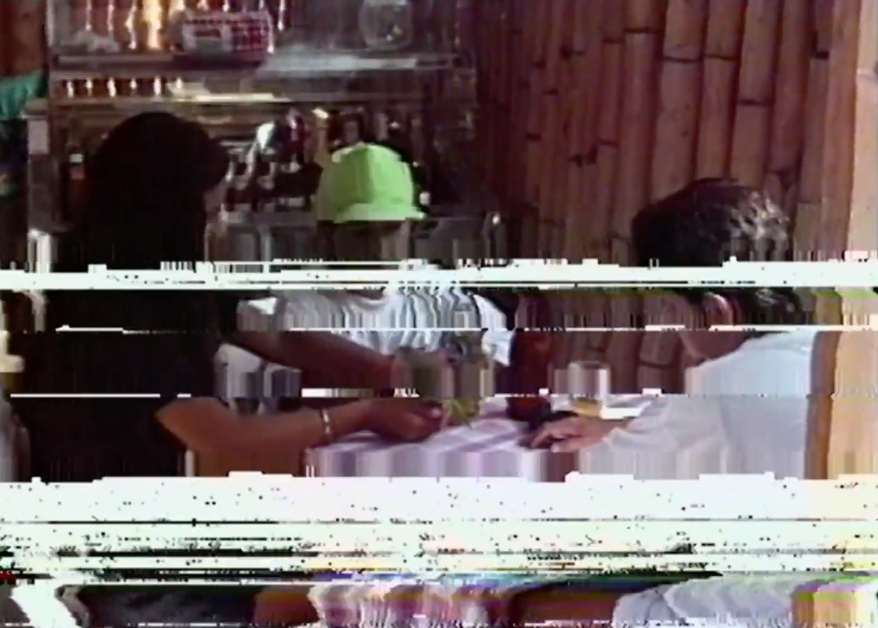
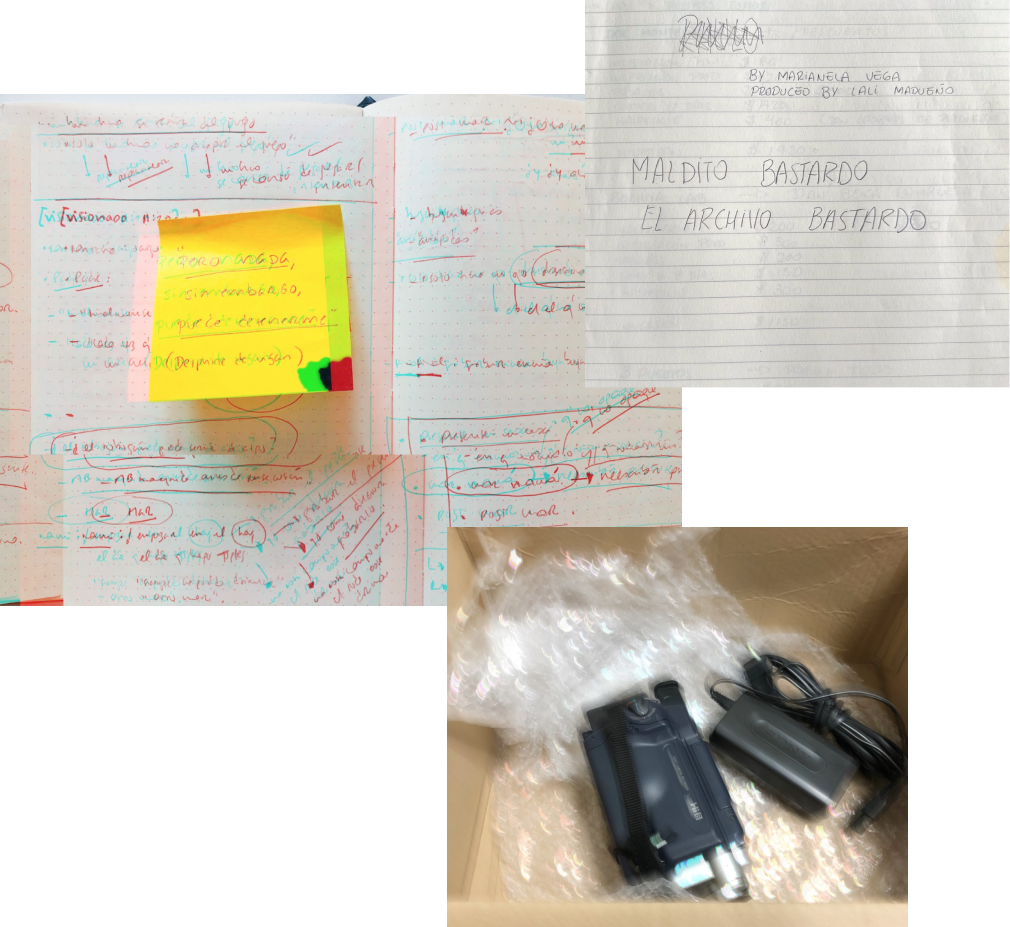
I claim that I never believe him
That I don’t listen to him
But it’s not always true
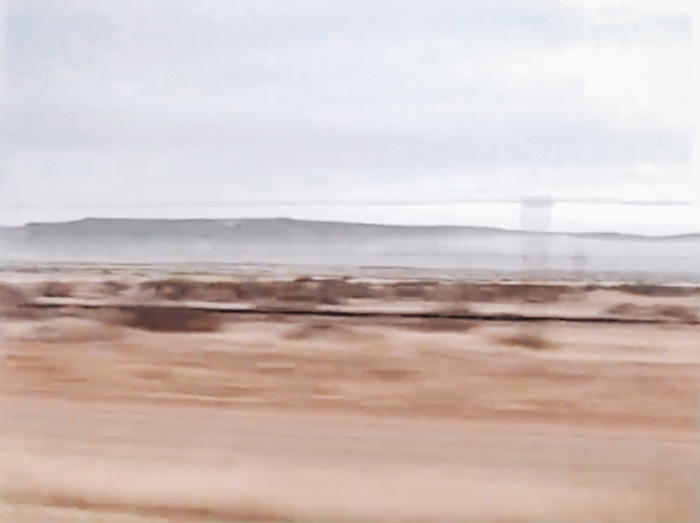

Y la muerte no tendrá dominio
(Victoria Guerrero)
You have to wear the film like a vest. It’s a physical sensation; you must feel it all over your body.
El otro montaje (Coti Donoso)

For alchemy to take place in a film, the form must include the expression of its own materiality, and this materiality must be in communion with the question of its subject. If this union is not present, if the literalness of the film is so overwhelming, so illustrative, as to obliterate the medium of which it is composed, then one is drawn into a state of absorption or credulous reverie which, while effective in that realm, loses the ingredients necessary for transmutation. Such a film denies its totality. It denies what it is made of.
Devotional cinema (Nathaniel Dorsky)
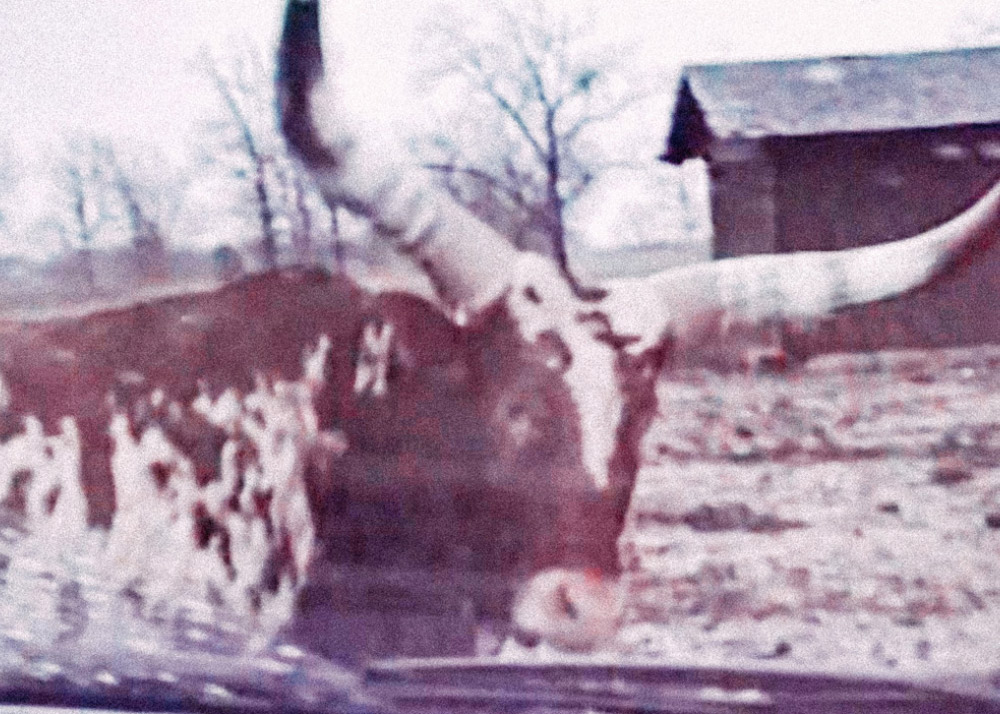
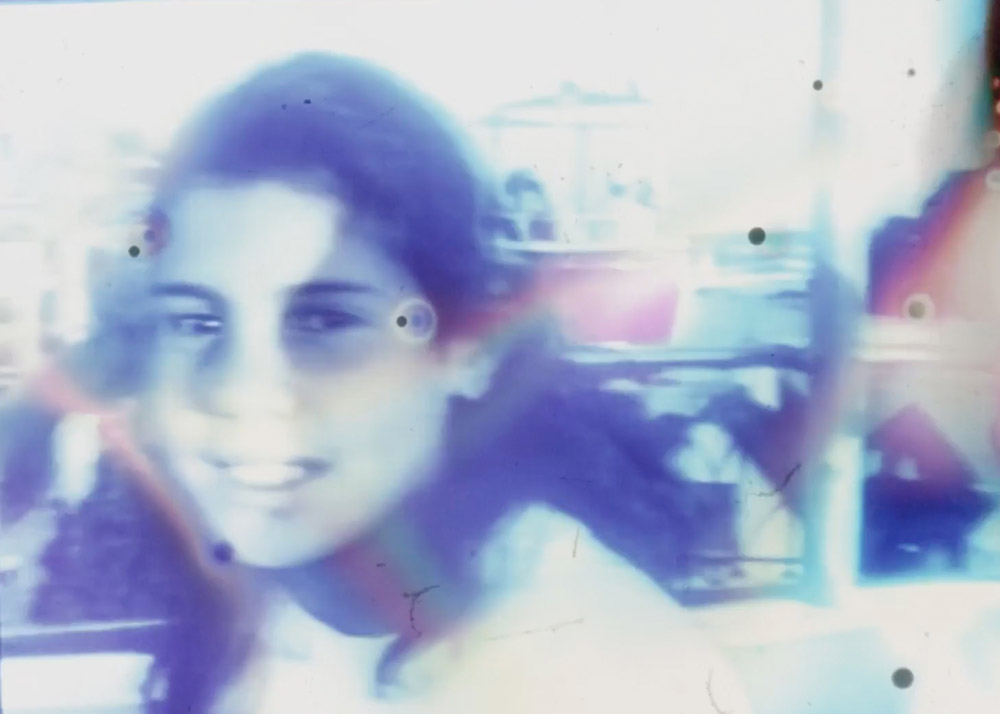
To be someone else in front of the camera
To become what I narrate
To narrate what I do
To live what I narrate
